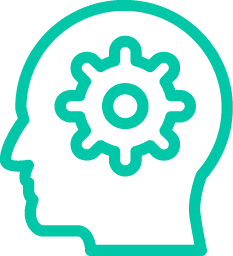What is Dementia?
Dementia involves damage of nerve cells in the brain, which can occur in several areas of the brain. Dementia affects people differently, depending on the area of the brain affected.
10 Tips for Reducing the Risk of Dementia
- Challenge yourself. Learn a new language, do a crossword puzzle or play chess.
- Take time to relax. Excess stress hormones can be harmful to the brain.
- Talk to friends and family about a wide range of interesting and challenging topics.
- Set personal goals. Goals don’t have to be ambitious but reaching one builds morale and a sense of satisfaction.
- Share funnies. Life is too serious, so when you hear or see something funny, share it with someone you know.
- Keep in touch. Friends and family can help keep you active, keep you grounded and help solve practical problems.
- Eat well by consuming dark leafy greens, nuts and healthy oils, and reduce your intake of red meat.
- Exercise for at least 30 minutes every day.
- Join in. Joining community groups, clubs and organizations makes you a part of something bigger and helps you feel connected.
- Sleep is essential for forming and consolidating memories. It plays a central role in the formation of new neuronal connections and the pruning of old ones.
It is never too early to start strengthening your brain health.
What is Dementia?
Let’s start by answering a question that many people ask – What is the difference between Dementia and Alzheimer’s disease?
What is Dementia? Handout
DOWNLOAD PDF | 在这里下载 | ဒီ အီၤ ဖဲအံၤတက့ၢ် | यहाँ डाउनलोड गनुर्होस्
The changes are persistent and significant enough to interfere with daily life. While dementia is more common with advanced age, it is not a normal part of aging.
Since dementia refers to a group of symptoms that accompany several diseases and conditions, it is very important to have a complete evaluation from your physician to determine the cause of the symptoms.
There are several reversible or treatable causes of dementia. Some include:
- Infections
- Medication side effects
- Vitamin deficiency
- Depression
- Severe hypothyroidism
There are different causes for the symptoms of dementia that are non-reversible. The most common causes of these dementias are:
- Alzheimer’s disease
- Vascular dementia
- Mixed Dementia
- Frontal temporal lobe degeneration
- Parkinson’s disease (does not always result in dementia)
- Lewy body dementia
- Traumatic brain injury
- Huntington’s disease
- Chronic alcohol or drug use (can be reversible, often is persistent)
Often, the words dementia and Alzheimer’s disease are used interchangeably in conversation. The difference between the two is that dementia is a symptom, and Alzheimer’s disease is a disease. Alzheimer’s disease causes a person to exhibit symptoms of dementia. We are all touched by dementia in some way. We all have a friend, family member, neighbor, or colleague who is either living with the disease or helping care for someone who has the disease.
Dementia symptoms vary depending on the cause, but common signs and symptoms include:
Cognitive changes
- Memory loss, which is usually noticed by a spouse or someone else
- Difficulty communicating or finding words
- Difficulty reasoning or problem-solving
- Difficulty handling complex tasks
- Difficulty with planning and organizing
- Difficulty with coordination and motor functions
- Confusion and disorientation
Psychological changes
- Personality changes
- Depression
- Anxiety
- Inappropriate behavior
- Paranoia
- Agitation
- Hallucinations
Please talk to your health care provider if you or your loved one experience any of the following changes:
- Forgetting recently learned information, important dates or events; asking for the same information repeatedly; needing to rely on notes or family members for things that could be handled independently.
- Difficulty planning complex tasks or working with numbers, such as paying monthly bills.
- Difficulty concentrating or taking much longer to do things that used to be considered easy.
- Getting lost while walking or driving or forgetting how to drive to familiar locations.
- Difficulty with vision such as reading, seeing while driving, or judging how far away things are.
- Trouble keeping track of dates, the time, or the day of the week.
- Trouble following or joining in on a conversation.
- Difficulty thinking of the right word to say or the names of familiar items.
- Changes in grooming and bathing habits.
- Poor judgement and decision making.
- Avoiding social interactions.
Hand in Hand at Home
There are simple things you can do to transform your home into a supportive place that helps your loved one with dementia function better. We are going to show you just how to do it.
What is Dementia?
Dementia isn't a specific disease. Instead, dementia describes a group of symptoms affecting memory, thinking and social abilities severely enough to interfere with daily functioning.
Transforming Your Home
The best home environment is one that supports the abilities of the people living there. Small changes in lighting, color, contrast, cueing, clutter, and noise can make a big difference.
Declutter
Understand the negative impact of clutter and take steps to improve the home environment.
Enhance Lighting
Simple changes in lighting can be made in the home to help your loved one function more independently and sleep better.
Support Memory
Create a memory center in your home to reduce confusion and foster wellbeing.
Communicate Effectively
Use a style of communication that is easier for the person with dementia to understand and follow conversations.
Understand Behaviors
Make sense of unexpected behaviors and learn how to prevent them.
Walking About
Tips for understanding and preventing walking about as well as information about how to choose a locating device.
The Power of Choice
Given them every opportunity to make informed choices about their care, leisure time, clothing, food and anything else that affects their life.
Power of Purpose
We all need a reason to get out of bed each day. People with dementia need to know their life has meaning and purpose.
Hiring Home Care
Learn how to ease the transition to additional care partners find out what questions to ask.
Self-Care
Advice for taking care of yourself, learning how and where to ask for help and scheduling breaks from caregiving.
Get Started!
You can do this! Take one step at a time. Follow these steps to get started.



